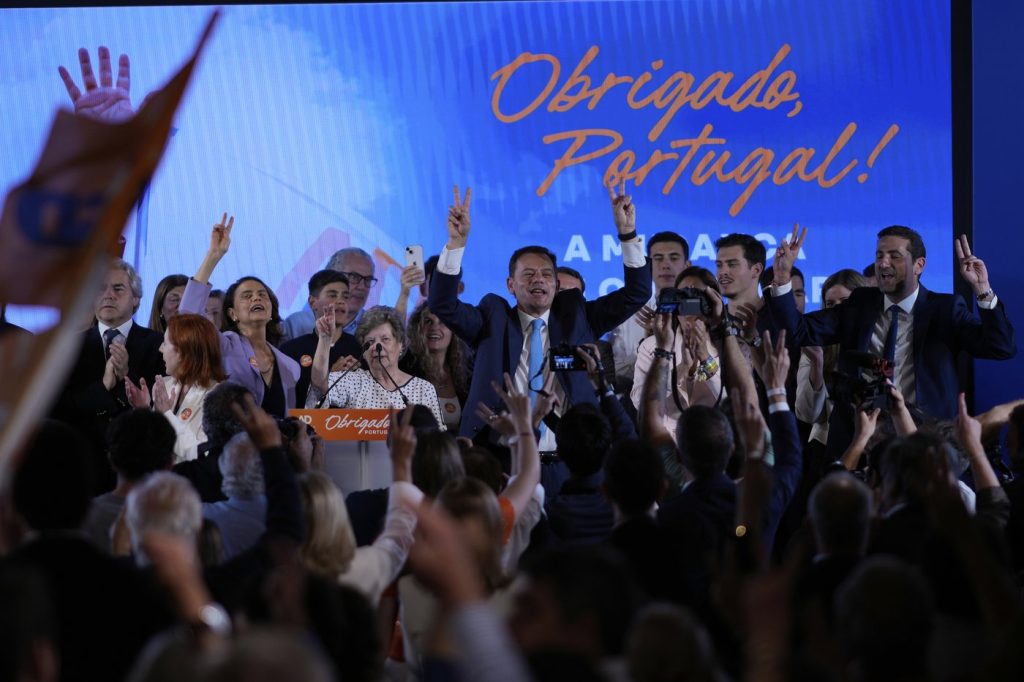LISBON, Portugal (AP) — Following a recent general election, Portugal's political landscape has been shaken by the emergence of a minority government and a significant rise in populist sentiments. President Marcelo Rebelo de Sousa is set to convene political parties for consultations on Monday to discuss the future steps following the election results that saw the Democratic Alliance coalition, led by the Social Democratic Party, securing 89 out of the 230 seats in the National Assembly.
The Democratic Alliance's failure to achieve a parliamentary majority has left it vulnerable to opposition. Just two months prior, this coalition was ousted in a confidence vote after less than a year in power, signaling a period of political instability that has plagued Portugal for the last few years. Luis Montenegro, the leader of the Democratic Alliance and incoming prime minister, expressed a desire to avoid further early elections, appealing to opposition parties for stability and cooperation.
The election has marked a notable shift in Portugal's political dynamics, with the populist party Chega (meaning "Enough") capturing a surprising 58 seats, placing them on equal footing with the Socialist Party. This result is a clear indication that the long-standing two-party system in Portugal may be coming to an end. Chega, founded only six years ago, has gained traction by resonating with voters disillusioned by traditional political parties. The party's campaign, under the slogan "Save Portugal," has prominently focused on nationalism, stricter immigration policies, and anti-corruption measures.
Over the past 50 years, the Social Democrats and the center-left Socialist Party have alternated in power; however, the recent election outcomes reflect a broader trend observed across Europe, where far-right parties are gaining popularity. Chega leader Andre Ventura has associated with other far-right figures across Europe, drawing parallels with parties like France's National Rally and Italy's Brothers of Italy.
The Socialist Party is currently leaderless following Pedro Nuno Santos's resignation—prompted by the party's worst electoral performance since 1987. The Democratic Alliance itself faced significant challenges even before the election, including a controversial confidence vote tied to potential conflicts of interest related to Montenegro’s family law firm. Montenegro has denied any wrongdoing amidst rising corruption scandals that have compounded the public's frustration and contributed to Chega's rise.
Immigration has emerged as a focal issue for voters, particularly as Portugal has experienced a substantial increase in legal immigration—jumping from under 500,000 in 2018 to over 1.5 million by early 2023. Many of these immigrants, primarily from Brazil and Asian nations, have come to work in sectors such as tourism and agriculture. In a bid to respond to growing public concern over immigration, the recently formed Democratic Alliance government announced its plans to expel approximately 18,000 unauthorized foreigners just weeks before the election, a move criticized as being politically motivated.
In addition to immigration, a housing crisis has further ignited debates among voters. Over the last decade, housing prices and rents have soared, with a reported 9% increase in property values last year and the steepest rental hike in 30 years around Lisbon. This has exacerbated the hardships faced by a population already grappling with relatively low average salaries, estimated at around 1,200 euros ($1,340) monthly before taxes and a minimum wage set at 870 euros ($974).
The political landscape in Portugal remains complex and fraught with challenges as the newly formed government must navigate an increasingly fragmented assembly and public discontent fueled by immigration, housing issues, and past corruption scandals. The outcome of these developments will play a crucial role in shaping the future of Portuguese politics.











